5 Students Reflect On Their Summer Internship
Wednesday Aug 14,2019 | Programmes
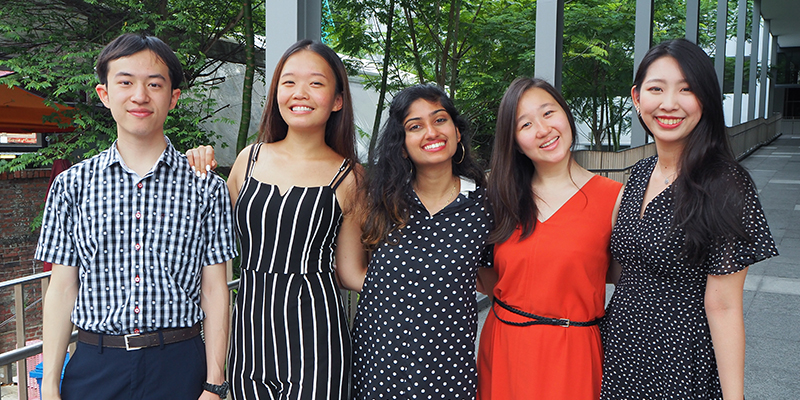
No matter what your academic major or preferred industry is, having real-world working experience puts you at an advantage in front of prospective employers. That is why it is not uncommon these days for undergraduates to take a leave of absence from school to extend their internship. Many are also choosing to undertake more meaningful internship programmes that enable them to create positive impact for a cause they believe in.
As part of our Summer Associates Programme, we hosted 10 interns from institutions including Columbia University, University of Pennsylvania, Hanyang University, Yale-NUS College, National University of Singapore and Singapore Management University, who had an opportunity to contribute socially-driven content for the Shirin Fozdar Programme and hone their media-savvy skills by writing articles for Social Space Magazine.
We caught up with 5 summer associates to find out more about their internship experience.
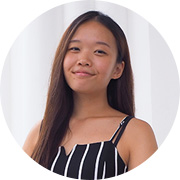 Linda Wang is a 2019 Summer Editorial Associate for Social Space Magazine. She is a rising sophomore at the University of Pennsylvania, where she studies Mathematical Economics, Computer Science, and Political Science. She also writes for the online journal of Sigma Iota Rho, an International Relations Honor Society. She is passionate about social entrepreneurship and their potential for meaningful change. In her free time, she loves listening to podcasts and audiobooks, traveling the world, and journaling. She can be reached at itslinds [at] sas.upenn.edu
Linda Wang is a 2019 Summer Editorial Associate for Social Space Magazine. She is a rising sophomore at the University of Pennsylvania, where she studies Mathematical Economics, Computer Science, and Political Science. She also writes for the online journal of Sigma Iota Rho, an International Relations Honor Society. She is passionate about social entrepreneurship and their potential for meaningful change. In her free time, she loves listening to podcasts and audiobooks, traveling the world, and journaling. She can be reached at itslinds [at] sas.upenn.edu
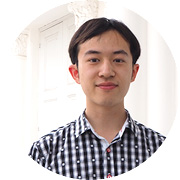 Bingxuan “Peter” Wang is a 2019 Summer Editorial Associate for Social Space Magazine. He comes from Beijing and is currently a rising third-year student at Columbia University in New York, where he majors in Philosophy. Focused on the intersection between journalism and social activism, he writes for his school newspaper and is involved with an educational nonprofit. In his free time, he likes traveling, watching films, and reading any book that falls into his hands. He can be reached at bw2550 [at] columbia.edu
Bingxuan “Peter” Wang is a 2019 Summer Editorial Associate for Social Space Magazine. He comes from Beijing and is currently a rising third-year student at Columbia University in New York, where he majors in Philosophy. Focused on the intersection between journalism and social activism, he writes for his school newspaper and is involved with an educational nonprofit. In his free time, he likes traveling, watching films, and reading any book that falls into his hands. He can be reached at bw2550 [at] columbia.edu
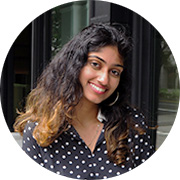 Needhi Mehta is a 2019 Summer Editorial Associate for Social Space Magazine. She is a rising senior at the University of Pennsylvania, where she studies Neuroscience, Healthcare Management, and Asian American Studies. She is interested in advocating for marginalised groups, raising awareness about social inequalities and uplifting immigrant communities. She can be reached at nemehta [at] sas.upenn.edu
Needhi Mehta is a 2019 Summer Editorial Associate for Social Space Magazine. She is a rising senior at the University of Pennsylvania, where she studies Neuroscience, Healthcare Management, and Asian American Studies. She is interested in advocating for marginalised groups, raising awareness about social inequalities and uplifting immigrant communities. She can be reached at nemehta [at] sas.upenn.edu
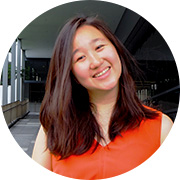 Chelsea Ong is a 2019 Summer Research Associate under the Shirin Fozdar Programme. She is a rising senior at Yale-NUS College and is majoring in Anthropology. Being brought up by disabled parents, she cares for the rights of the marginalised and volunteers to help at-risk youths, refugees and persons with disabilities. In her spare time, she sometimes facilitates socio-emotional training courses and spends time pampering her foster-cat. Reach out to her at chelsea.ong [at] u.yale-nus.edu.sg
Chelsea Ong is a 2019 Summer Research Associate under the Shirin Fozdar Programme. She is a rising senior at Yale-NUS College and is majoring in Anthropology. Being brought up by disabled parents, she cares for the rights of the marginalised and volunteers to help at-risk youths, refugees and persons with disabilities. In her spare time, she sometimes facilitates socio-emotional training courses and spends time pampering her foster-cat. Reach out to her at chelsea.ong [at] u.yale-nus.edu.sg
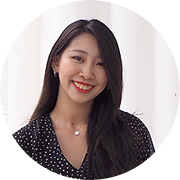 Valencia Toh is a 2019 Summer Media & Marketing Associate under the Shirin Fozdar Programme. She is a rising sophomore at Hanyang University, where she majors in Media Communication and International Relations. Valencia strives to utilise her knowledge in both fields to create positive change in society. Having interacted with underprivileged locals while on an internship in Phnom Penh, Cambodia, she is passionate about making long-term differences in people’s lives. When she’s not pursuing her passion for travel, dance or fashion, she is constantly planning her next step to achieve both her professional and personal goals. She can be reached at valenciatohenxin [at] gmail.com
Valencia Toh is a 2019 Summer Media & Marketing Associate under the Shirin Fozdar Programme. She is a rising sophomore at Hanyang University, where she majors in Media Communication and International Relations. Valencia strives to utilise her knowledge in both fields to create positive change in society. Having interacted with underprivileged locals while on an internship in Phnom Penh, Cambodia, she is passionate about making long-term differences in people’s lives. When she’s not pursuing her passion for travel, dance or fashion, she is constantly planning her next step to achieve both her professional and personal goals. She can be reached at valenciatohenxin [at] gmail.com
What were your expectations for this internship? How was your experience similar or different from your expectations?
Chelsea: I was told from the outset that I would be curating Shirin Fozdar Programme’s Online Library collection and that it would entail a lot of reading. Coming into the internship, I expected to read and delve more deeply into the issues that are currently in the feminist discourse and collaborate with the other interns to publicise the library better.
I underestimated the amount of time it would take to go through the 500+ academic and policy papers. It was a more solitary and tedious role than I had expected, primarily because there was so much material to go through. However, I did enjoy the masterclasses and field trips—they were quite helpful for my personal growth.
I also had a chance to start my own personal project on what it is like to be a Singaporean man in an age of increasing female empowerment. It began as a point of curiosity that is now culminating in an article and an event that I will host independently outside of the internship. Researching for my personal project has given me an opportunity to engage with people I would not otherwise have spoken to and review very interesting materials that run completely counter to the other research piece I am working on.
Valencia: I expected to have a platform to shine a light on the stories of disadvantaged individuals, thereby promoting inclusivity and cultivating understanding for those on society’s fringe. More importantly, I wanted to learn about how Singaporean society is supporting these groups and the processes behind it. I hoped to be able to interact with some of these individuals and learn things from their perspectives as well.
My experience was pretty similar to my expectations because I crafted projects that allowed me to hit those goals. This internship gave me the platform and opportunity to meet these individuals, understand their story and learn by working alongside them. More importantly, through this internship, I managed to learn about different organisations and individuals who have been investing enormous amounts of time and energy into their work for these marginalised groups.
Peter: I expected to split my work between writing and editing, but in reality I spent most of my time doing interviews, conducting research and writing. I think the difference between my expectation and experience is due to the nature of Social Space as a bi-annual magazine, which means that it publishes fewer articles but each article it publishes is more in-depth and requires more research than a regular news article. I became more familiar with what it is like to work for a magazine after this internship.
What did an average workday look like for you?
Chelsea: I start work sometime between 8:30 AM to 9 AM and typically begin reading articles from the library. I log the excerpts and themes of each article into a huge excel spreadsheet and decide which I want to keep or trim. After lunch, I will usually finish up smaller tasks like sending out emails or replying to work groups, before reading some more articles. Occasionally, I might attend crash courses held by the other interns, or I could be out of the office to conduct an interview.
Valencia: I would start an average day by first checking my work email, mainly to reply to various social enterprises to schedule interviews and meetings. Then I would check on the Shirin Fozdar Programme’s LinkedIn page to make sure that its social media calendar is in place, the media posts have been approved or to create new media posts. Following which, I work on my own social media project. This either involves crafting questions for upcoming interviews, finding new interviewees, transcribing interviews, writing short articles or creating designs for posts, EDMs (email newsletters) or event collateral. I usually have a notebook with my daily to-do list to ensure that I don’t miss out on any details and to keep myself organised.
Needhi: I would get to work early and visit the Koufu food court to eat some kaya toast for breakfast. Then, I would usually start the day by answering emails or transcribing interviews for my feature and Changemaker Cheatsheet articles. Most of my work involved drafting my Cheatsheet pieces for the changemakers I had already interviewed, or conducting more research for my feature article.
How would you describe the LCSI office culture?
Chelsea: People are typically very friendly in the office and let you do your thing. The schedules are more or less quite flexible, and interns are expected to take self-initiative with regards to the work that they do or the activities they are keen on joining. There is a nice culture of skill-sharing and growth, which helps us get to know each other better while learning new things.
Peter: I loved how spacious and cozy the office was. I also liked how everyone was so friendly and easy to speak with. The work was enough to keep me busy, but I never felt stressed or overworked. Given some of the experiences I heard from my peers from school who also came to intern in Singapore, I felt really blessed to work at the LCSI.
Linda: We were given a lot of independence to choose our own topics and interview whomever we pleased, so the environment called for a lot of self-accountability and creativity. I personally found that the amount of work we had was not overly-demanding, and as a result, many of us took the initiative to produce more articles, conduct more in-depth research through personal interviews or take on personal projects. My supervisors were incredibly supportive of all our endeavors and I formed a close bond with them.
What were your favorite aspects of the internship? What were some areas of improvement?
Needhi: Getting to know the other interns was a really great experience because we were all from such different places—Singapore, US, Korea, and China. It felt like we were all friends from school and the amiable environment made the internship experience a lot more fun to be in.
On the other hand, I would have wanted to collaborate on an article or video with the other interns. I think that could have been a great way to put all our strengths and ideas together. However, I liked that even if we weren’t working on a collaborative article, we were able to ask each other for help with filming or taking photos for our individual articles.
Linda: My supervisor, Eunice, trusted me enough to give me a lot of independence and room to be creative. She checked up on me frequently and gave me enough constructive criticism to ensure I wasn’t running astray, but she always encouraged all the writers to forge our own path. As interns, our daily schedules were incredibly flexible, especially because we were always free to leave the office to conduct interviews with different organisations and individuals we found to be interesting.
I also loved the location of the office. We’re near the central business district and there are always so many exciting places to explore around our building during lunch breaks. On one particularly sunny day, after I turned in all my article drafts, I took a nice long walk around the block and visited an art gallery and a popular cafe. The area is simply beautiful.
Could you summarise what your feature article was about? How did you settle on the topic of your feature article?
Peter: My article is a commentary on how Special Assistance Plan (SAP) schools, a special type of school that promotes the learning of Chinese language and culture, create an ethnicity-based inequality in access to high-quality education in Singapore. Initially, I thought I would write an article about Singapore’s mother tongue educational policy, but the idea was too general and vague to be turned into an article. I was glad when I came upon SAP schools during my research since these schools summarised my deep concerns about the ethnicity-based mother tongue policy and also gave me a topic that was specific enough to write an article about.
Needhi: My feature article was about the ties between mental health and single motherhood. I wanted to explore the hardships and highlight the experiences of single mothers—divorced, widowed, and unmarried—and then learn more about how their hardships or daily life impact their mental wellbeing.
I think being Asian and having been raised by a single mom made me want to explore the intersection of cultural values and single parenting. I also noticed that it was an understudied topic and that a lot of the articles I kept reading in Singapore focused on the conventional family unit when discussing families. I wanted to speak to and learn more about the topic in relation to mental health, which I thought could be a unique take.
Linda: I wrote my feature article on small medium enterprises (SMEs) in Singapore. SMEs make up 99 per cent of Singapore’s businesses, contribute 48 per cent to Singapore’s GDP, and employ 72 per cent of Singapore’s workforce, yet I feel like they’re not celebrated or appreciated enough. Both of my parents are co-owners of a small business and I was influenced heavily by their work style growing up, which is partially why I chose this topic. I accrued some governmental resources for aspiring business owners, interviewed business founders and wrote some commentary about the value of SMEs in society. I loved writing about the topic and it was incredibly exciting to interview startup founders.